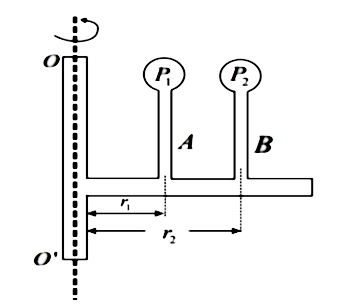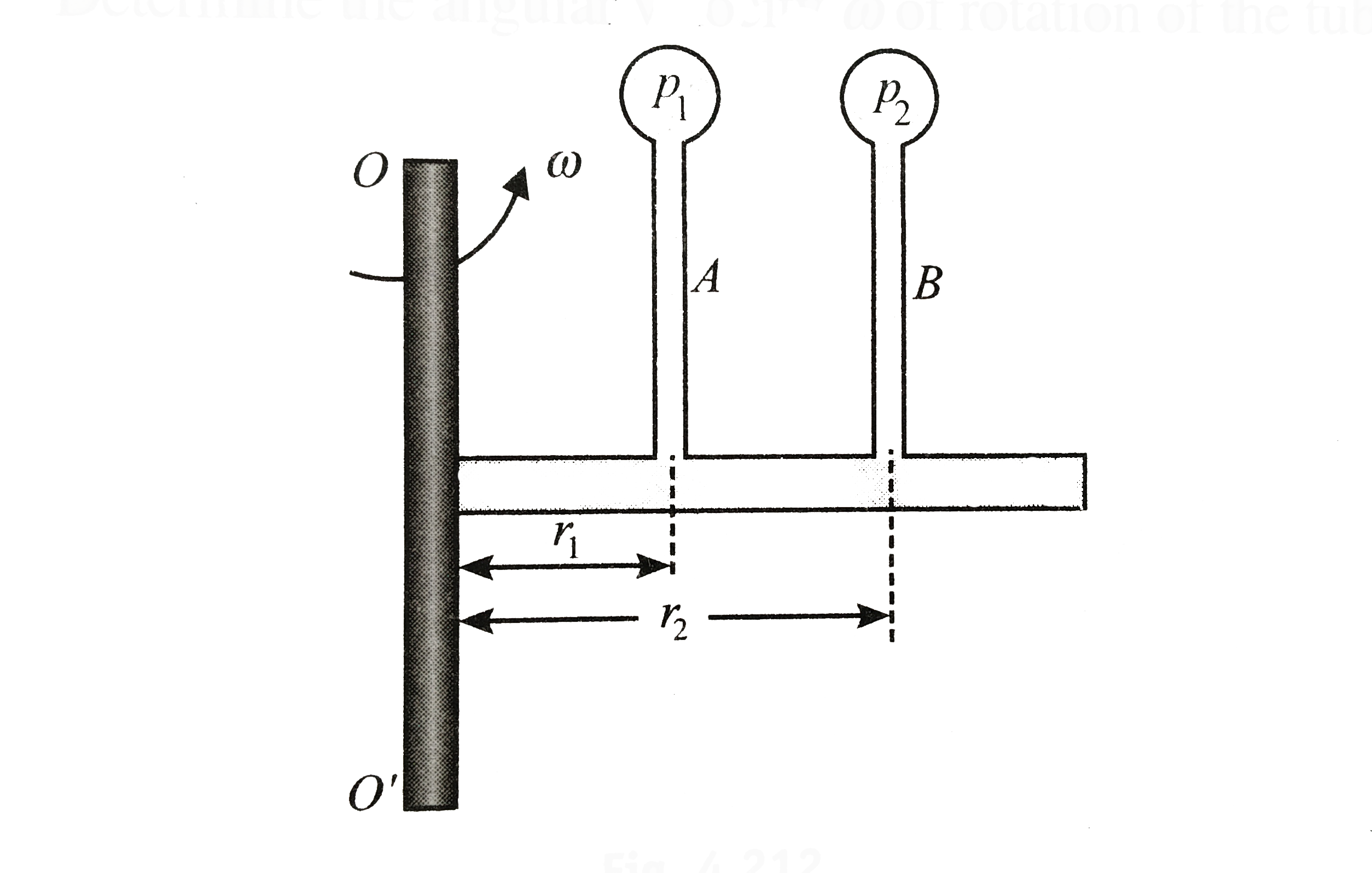Two particles A and B are located at distances and from the centre of a rotating disc such that . In this case
(Angular velocity of rotation is constant)
both A and B do not have any acceleration
both A and B have same acceleration.
A has greater than B
B has greater than A
The correct Answer is:C
Step by step video, text & image solution for Two particles A and B are located at distances r_(A) and r_(B) from the centre of a rotating disc such that r_(A) gt r_(B) . In this case (Angular velocity (omega) of rotation is constant) by Physics experts to help you in doubts & scoring excellent marks in Class 12 exams.
Topper's Solved these Questions
- BOOK - TARGET PUBLICATIONCHAPTER - CIRCULAR MOTIONEXERCISE - COMPETITIVE THINKING102videos
CIRCULAR MOTION
- BOOK - TARGET PUBLICATIONCHAPTER - CIRCULAR MOTIONEXERCISE - EVALUATION TEST11videos
CIRCULAR MOTION
- BOOK - TARGET PUBLICATIONCHAPTER - CIRCULAR MOTIONEXERCISE - EVALUATION TEST11videos
CIRCULAR MOTION
- BOOK - TARGET PUBLICATIONCHAPTER - ATOMS, MOLECULES AND NUCLEI EXERCISE - Evaluation test19videos
ATOMS, MOLECULES AND NUCLEI
- BOOK - TARGET PUBLICATIONCHAPTER - CURRENT ELECTRICITY EXERCISE - Evaluation Test6videos
CURRENT ELECTRICITY
Similar Questions
A closed tube filled with water is rotating uniformly in a horizontal plane about the axis OO as shown in the figure. The manometers A and B which are fixed on the tube at distances r1andr2, indicate pressures P1andP2 respectively. The angular velocity (ω) of the tube is
 View Solution
View SolutionTwo hydrogen atoms are located at the distances r1 and r2 from origin. Their centre of mass is at
View Solution
Knowledge Check
- Question 1 - Select One
Two particles p and q located at distances rp and rq respectively from the centre of a rotating disc such that rp>rq.
Aboth p and q have the same accelerationBboth p and q do not have any accelerationCp has greater acceleration then qDq has greater acceleration than p - Question 2 - Select One
Two particles P and Q are located at distance rpandrQ respectively form the centre of rotating disc such that rP>rQ. The disc is rotating with constant angular acceleration. We can say
ABoth P and Q have the same acceelerationBBoth P and Q do not have any accelcrationCP has greater acceleration than QDQ has greater acceleration than P - Question 3 - Select One
Two particles P and Q are located at distance rpandrQ respectively form the centre of rotating disc such that rP>rQ. The disc is rotating with constant angular acceleration. We can say
Aboth P and Q have the same accelerationBboth P and Q do not have the same accelerationCP has greater acceleration than QDQ has greater acceleration than P
A tube filled with water and closed at both ends uniformly rotates in a horizontal plane about the OO' axis. The manometers A and B fixed in the tube at distances r1 and r2 from rotational axis indicate pressure p1 and p2 respectively. Determine the angular velocity ω of rotation of the tube.
 View Solution
View SolutionTwo particles of a rigid body of masses m1 and m2 are completing one rotation in paths of radius r1andr2 respectively in same time. The ratio of their angular velocities is :
View SolutionTwo particles A and B are moving in uniform circular motion in concentric circles of radii rA and rB with speed uA and uB respectively. Their time period of rotation is the same. The ratio of angular speed of a to that of B will be:
View SolutionTwo particles A and B are moving in uniform circular motion in concentric circles of radii rA and rB with speed uA and uB respectively. Their time period of rotation is the same. The ratio of angular speed of a to that of B will be:
View SolutionA liquid is kept in a cylindrical vessel which is being rotated about a vertical axis through the centre of the circular base. If the radius of the vessel is r and angular velocity of rotation is ω, then the difference in the heights of the liquid at the centre of the vessel and the edge is.
View Solution

